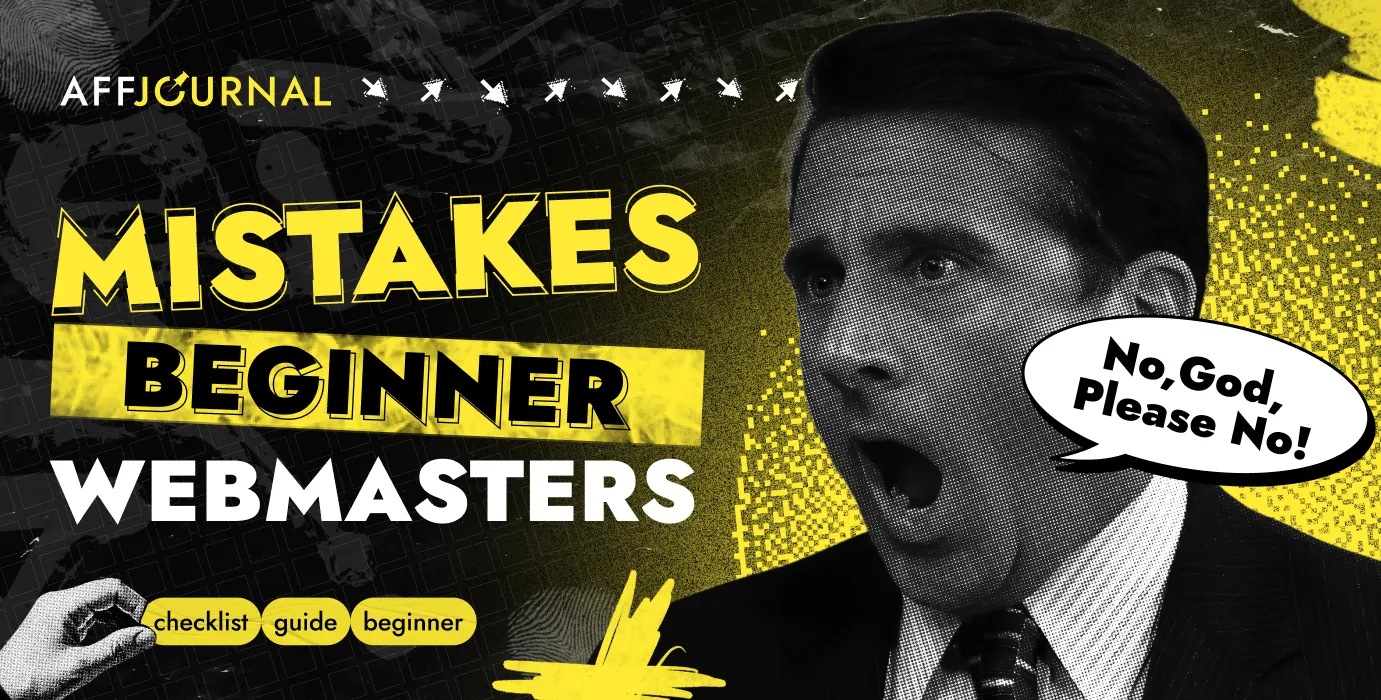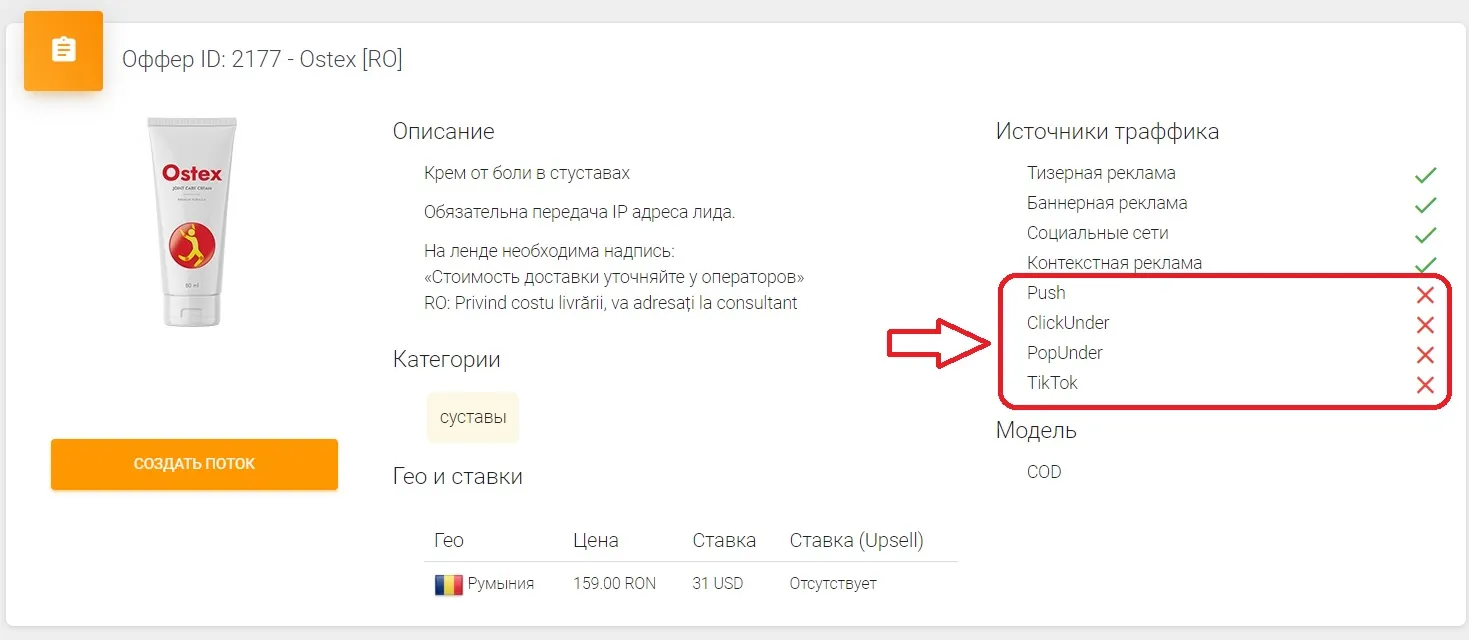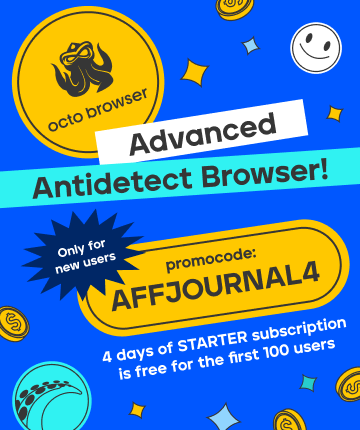

by Editor
When working with an affiliate program for the first time, you may encounter things that no one will tell you about, assuming they are obvious. But everyone is different, with their own experiences and perceptions, and for many, the unspoken rules of interacting with affiliate programs turn out to be a revelation. There are negative reviews online from those who failed to start in CPA marketing. These individuals are convinced that marketing is deception or a lottery for suckers. However, more often than not, behind these reviews are mistakes that could’ve been avoided.
We’ll discuss the top popular mistakes that can lead to budget drain and conflicts. We’ll provide advice that, if followed, will allow you to start working with your affiliate program very productively and quickly profit. 💰
Not communicating with the affiliate program manager
If the webmaster's goal is not just to register with the affiliate program and explore the interface from within but to start running traffic, reaching out to their manager is very beneficial. Many affiliate program managers proactively reach out to newcomers, are open to dialogue, and there's no need to avoid getting acquainted.
The affiliate program is structured in such a way that advertisers present their offers in it, paying a commission for promotion. The more products are sold, the more leads come to the advertiser, the higher the commission the affiliate program receives. This means that the affiliate program, as well as its managers, are interested in helping webmasters so that they generate many high-quality leads.
What else the manager will help with:
- inform you about current trends – what's converting well, where, and how;
- provide excellent promotional materials, recommend the best landing page, not necessarily the one available in the personal account;
- you can negotiate better conditions with them by providing your statistics and proof of experience working with traffic;
- you can find out from them about any private, exclusive offers and what needs to be done to get them.
Falling into the multitasking trap
Some novice affiliates decide to take on 10-15 or more offers at once, and they can be completely different — from different categories and even different verticals.
For teams and top-level expert webmasters, this is normal: they have established business processes, understand the nuances of traffic generation, know their sources well, and have ready-made combinations and established groundwork. However, if a person is deciding to drive traffic for the first time in their life, it's better to start with 1, maximum 2 offers.
The more offers you have in play, the more campaigns for each one you need to launch to test all hypotheses. You'll have to test and analyze more. Consequently, you'll also need to spend more money. A novice is unlikely to be able to effectively manage hundreds of accounts and dozens of campaigns simultaneously. It's very easy to get confused.
Different affiliate programs provide various conditions for certain offers. It's useful to compare them. In the early stages, it's appropriate to explore at least 2-3 affiliate programs, take trial offers from them. Registering in 20 affiliate programs and taking on 20 offers right away is not the best solution.

Managing a large number of offers right away may be challenging for a novice.
Not delving into the descriptions and requirements for an offer
An offer is the advertiser's proposal to sell a product under certain conditions. Novices often forget about the conditions, start running traffic, and then encounter the situation where the advertiser doesn’t accept it. They experience a lot of emotions about it: money, effort, time — all wasted. The easiest path is to blame the advertiser or affiliate program for the shave and go complain on forums.
The problem may lie in the fact that the affiliate did not carefully read the requirements and conditions. For example, they were driving traffic to cities and regions where the advertiser doesn’t provide delivery. Or they were running Email traffic, but the advertiser does not accept such traffic, as clearly and transparently communicated in the offer description. Always study the offer, and if you have any doubts, it's better to consult with your manager. Conditions may relate to:
- Creatives. For instance, the advertiser specifies that only their creatives can be used, and using your own is prohibited. If using your own, there may be specific requirements for colors, images, and text.
- Celebrities. If a celebrity is mentioned in the creative, or their quote is used, but it does not actually belong to them, that celebrity may see the ad with their photo and take legal action. For this reason, some advertisers prohibit the use of real existing celebrities.
- Cities. In some island countries, delivery might only be available to major administrative centers. Therefore, remote villages accessible only by boats or dogsleds might be better excluded from targeting.
- Audience. Advertisers may clearly define the type of customers they are looking for: men, women, their age, etc.
- Traffic sources. Usually, prohibited sources include spam and incentivized traffic. However, sometimes less obvious sources, such as TikTok or push notifications, may also be on the prohibited list.
- KPI requirements. For example, specifying the number of leads needed for quality evaluation.

An example of an offer where the advertiser's rules prohibit traffic from popunders, click-unders, push notifications, and even TikTok.
Not engaging in analytics and testing
Almost all affiliate programs offer detailed statistics, integration with trackers, and support for third-party analytics tools. Also, there are detailed reports available in any traffic source: Facebook, Google, and ad network dashboards. Reporting is essential for studying your metrics, taking action if something goes wrong, such as low conversions or budget wastage.
Affiliate marketing is not "a cushy job". The perception that it's just a money button could have developed due to a misinterpretation of successful cases shared by experienced webmasters. Some top webmasters in interviews might genuinely mention that there's nothing difficult about it.
To achieve success, one needs to work hard, develop skills, and, above all, have the ability to read numbers, analyze, understand their metrics, and identify patterns. CPA marketing involves constant testing, and you need to monitor metrics at every stage of the campaign.
Within A/B testing, you can monitor:
- Which approach works best. For example, an interview approach with a doctor may work, or a product-focused approach, or a teaser one.
- Which traffic source and ad format might be more effective. For instance, some offers may perform exceptionally well in the Facebook feed, while others excel in push notifications.
- Which landing page structure yields higher conversions. Tests help identify which design of the landing page attracts more leads.
- Which creative turns out to be the most successful. It's beneficial to test 10 or more creatives with different approaches for a single offer. The more tests conducted, the higher the likelihood of finding a successful combination. In creatives, you can also test different calls to action, such as ordering, getting a discount, or relieving pain. Headlines are also a crucial part of advertising, and only through testing can you discover a compelling headline.
Trying to cheat / being careless and naive
Everyone can be deceived. Even an experienced webmaster isn’t immune to the risk of encountering dishonest collaborators. Usually, a good affiliate program promptly identifies and eliminates such incidents, excluding unscrupulous advertisers.
When choosing an affiliate program, you shouldn't be careless. It's essential to carefully consider:
- The experience of the affiliate program and its reputation. What is being said about the affiliate program in reviews, independent assessments, and on forums.
- Community and interaction. Check if the affiliate program has a social media presence and how actively it engages with its audience, whether the representatives interact with subscribers.
- Information about the company. Find out who the founders of the affiliate program are, how long it’s been in the market, whether there are any legal details on the website, and how long the domain has existed (you can check this using Whois).
The same applies to the flip side of the coin. Some beginners are confident that there is nothing shameful about trying to deceive an affiliate program, cut corners a bit. This never goes unnoticed.
It's one thing when a novice makes a mistake out of carelessness for the first time and generates low-quality leads. If they are interested in a long-term collaboration, can prove that there was no fraud, the situation may be resolved amicably. The affiliate program may accommodate and allow further traffic, but only if it's of high quality.
On the other hand, when a person deliberately decides to make more money through deceiving the affiliate program, it's a different story. For example, hiding prohibited sources, generating bot traffic, turning to a system of active advertising, paying school students to take calls and confirm orders, and then not picking up the goods when the webmaster has already received payment upon approval.
All affiliate programs have powerful anti-fraud systems and software that detect any attempt at intentional deception. If fraud is proven, the webmaster ends up in a blacklist. Their account is blocked, all the money they earned and didn't manage to withdraw remains in the affiliate program.
Conclusion
The mistakes we've discussed can be made by some novice affiliates, and these mistakes lead to unpleasant consequences. Our advice on how to avoid them will help you start without conflicts and significantly increase the chances of high profits.

by Editor



comments ....(0)
Leave a comment
You must be in to leave a comment